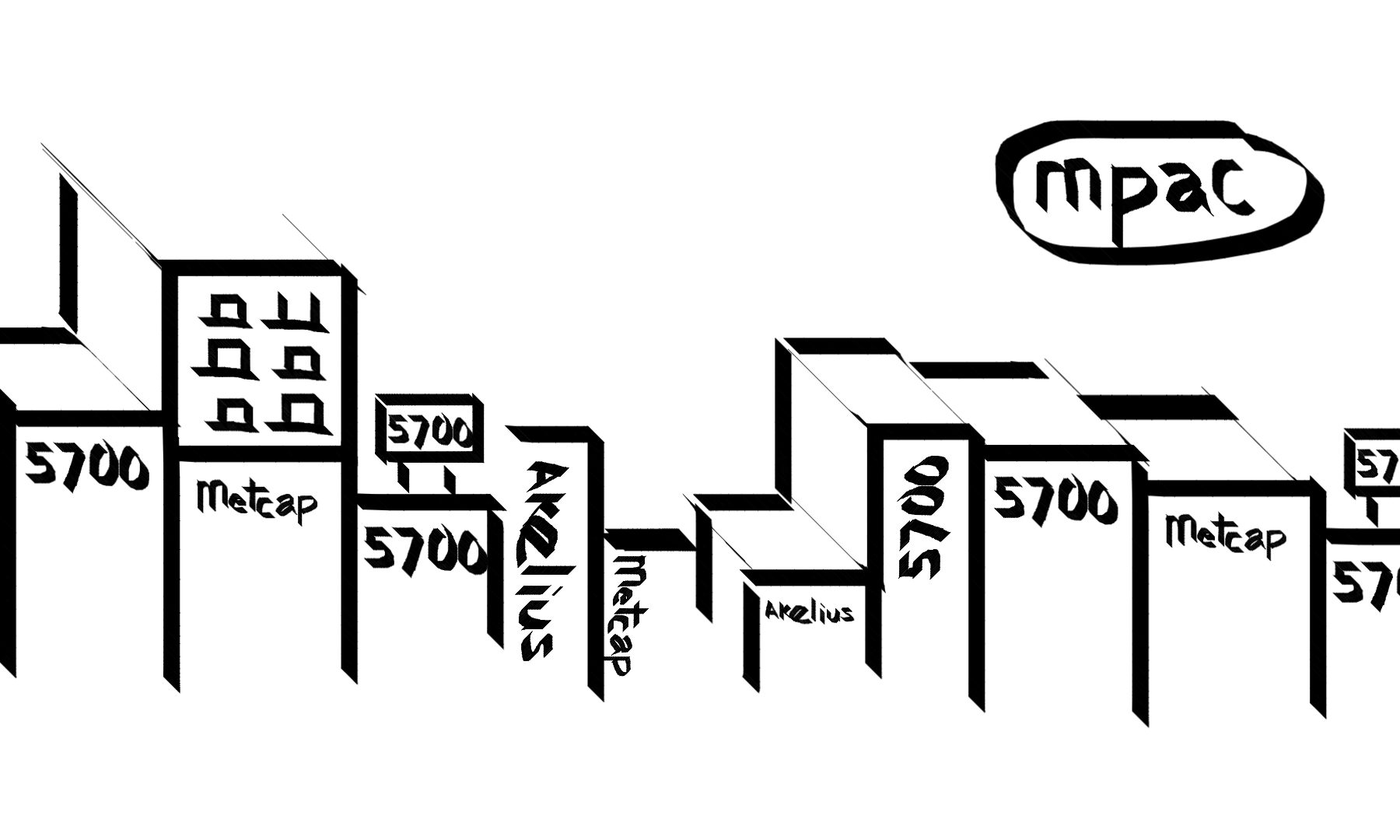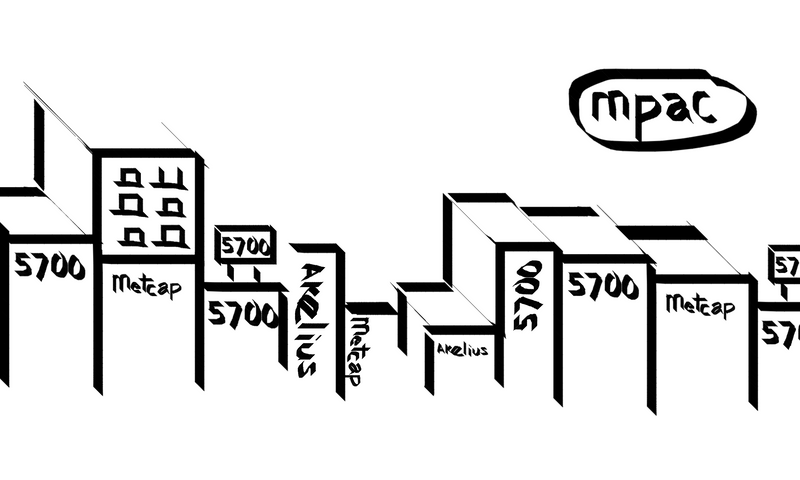Things
Today’s NYT cover story by Kashmir Hill is a wild blockbuster from the heart of the dystopia. Hill peels back the layers on a facial recognition app actively in use by law enforcement agencies that—right now and not at a vague handwavey point in the Black Mirror future—can identify a person based on an image of their face, and pull up that person’s visual footprints across social, video, and even payment networks on demand. It’s the sort of tech that we presume exists in shadowy realms, and of course exists by default in all spy movies, but of the many fascinating things going on in this investigation, perhaps the most unsettling is just how mundane it all is. A not-so-smart entrepreneur in a WeWork office wheels his desk chair right on past the red line other companies wouldn’t, even though they easily could have, justifying it with the old Valley maxim that if a thing can be built, somebody’s gonna, so you may as well be the one that profits. Then cops buy it because why wouldn’t they, and there in the background, as always, lurks Peter Thiel. Meanwhile, by default, a poorly considered but no doubt properly secured database of all of this, including who’s being searched for and by whom, accumulates on some cloud server somewhere, probably owned by Amazon. “I’ve come to the conclusion that because information constantly increases, there’s never going to be privacy,” one investor says in the story, washing his hands of what he hath wrought. Hoo boy.
Related: Anna Wiener’s Uncanny Valley is out this week and, halfway through so far, it’s as good as we hoped. This Atlantic review nails what Wiener portrays so well, the culture of “contented ignorance” that leads to… well… see above.
Over at The New Republic, Lia Russell looks at the underside of that contented ignorance—the state of the “growing underclass that does their shopping and drives their cars”, entrenched by the gig economy they’ve created and juiced with unimaginable amounts of fast-burning capital. You’ve read this setup before, for sure, but it’s interesting to look at how legislation like California’s new AB5 law—designed with an idealistic idea of fighting this exploitation but creating a new mountain of problems for almost everybody who has to work in the reality of contemporary gig-by-gig circumstance—is trying to put a lid on it.
Here in Toronto, friend of Buckslip Murray Whyte with one of the final pieces in the Guardian’s sadly departing Cities section, an elegiac account of our beloved neighbourhood of Parkdale as it succumbs to the unstoppable forces of change that have hit over the last decade. It’s one thing for invoice-to-invoice newsletter writers whose landlords find spurious ways to evict them for $500/month rent rises (yes, we’re bitter), but another thing entirely for the Tibetan community that are its heart and soul. Oh, and don’t even get us started about Vegandale.
“Ok Guardian sorry I’m not OLD like YOU.” In response, from the sort-of-anonymous person behind the Parkdale Life instagram account quoted in the article, another elegy, this time for the affordable chains in the neighbourhood that acted as de facto community centres, being driven out for the kind of shops that encourage laptops on tables, headphones on ears, and, well, not them. Yep, if you live long enough, you go from protesting the very existence of McDonald’s, to lamenting the closure of one for the loss it means to the community. And both of these things can be true at once!
Ah look, can we just get one of these MUJI houses shipped to us? We’ll just put it in a car park or something. We don’t mind.
The first thing we read in our nice MUJI house might be Kyle Chayka’s The Longing For Less, which we’re very much looking forward to reading—Kyle’s particular view on the world is one that often ends up in this here email. Its release has inspired a bunches of takes on minimalism this week, but the best we’ve read is this fantastic LitHub essay by Andru Okun, hunting for meaning in minimalism with Chayka by way of Jenny Odell, Junichiro Tanizaki, Donald Judd, Big Bend, gentrification, and to make first part of this email far too neatly wrapped, Kashmir Hill.
“As a consumer driven aesthetic, contemporary minimalism seeks blankness. Perhaps this is best exemplified by our phones, so sleek and simple in appearance, yet undeniably dependent upon a complicated network of server farms, factories, and mining operations, referred to in Against Creativity as “a vast and growing ‘material’ infrastructure—one that is ravenous for resources.” This resource reliance speaks to the rarefied set of privileges that informs so much of modern day minimalism, an often specious form of renunciation dependent upon social capital and access. That freedom from stuff should even be the driving idea behind minimalism is equally illusory.”

More ThingsIf there’s one reason to be hopeful about the world’s current state of affairs, it’s that populist movements pretty often run aground quickly, largely by virtue of the fact that once they win power, their own lack of experience governing, internal contradictions and resistance to, well, facts and expertise become their undoing. That’s already happening in Italy, where, after winning power only two years ago, the Five Star Movement is now falling apart. Or look at the clown show that is Jair Bolsonaro’s cabinet in Brazil (for an example, see below) and the president’s plummeting poll numbers. It reminds us of a coinage that the writer Ivor Tossell once used to describe the “management style” of Toronto mayor Rob Ford (the crack guy): uncompetence. “Incompetence is when people make bad decisions. Uncompetence is when people start to suspect that competence is something the elites do, and think to themselves, ‘I should perhaps do something else.’”
"The Brazilian art of the next decade will be heroic and will be national, will be endowed with great capacity for emotional involvement... deeply linked to the urgent aspirations of our people, or else it will be nothing." Brazil’s culture ministry cribs from Joseph Goebbels in a speech with Wagner playing in the background.
Famine: Has anyone been to an apocalypse before? It’s my first and I don’t really know what I’m getting into.
War: That’s, like, the whole point of an apocalypse. There’s only one.
Famine: Can I get some outfit advice? What if I was just, like, holding scales?
Pestilence: You’re gonna hold them the whole night?
Famine: Yeah, like . . . weighing the food? Get it?
Pestilence: Isn’t the point that you don’t have food? Like, you’d be weighing nothing? Also, I get that this event has a theme, but I don’t think it’s, like, costumed.The Four Horsemen of the Apocalypse’s Group Text.
“My vocals sound really dead inside, and what people reacted to the most was my absence.” Destroyer’s Dan Bejar accounts for the rare bit of commercial success he found with his 2011 album Kaputt in this very readable Pitchfork profile, basically a long thread of self-deprecating bon mots built smartly around Dan’s shopping excursion for a pair of green socks.
This sprawling editorial (credited to “the editors”) in the latest n+1 is an exhaustive and surprisingly-upbeat-in-its-cynicism account of the publishing industry’s last decade.
“In 2013, two of the biggest publishers in the world — Penguin and Random House — merged into one behemoth. At the time one might have read the merger as a defensive consolidation against Amazon’s monopsony, a scenario in which one buyer controls the majority of the market. But instead the Penguin Random House merger delivered efficiencies of exactly the kind cynics expected. Layoffs have hit PRH in discrete waves, each of them damaging to the diversity and range of the publisher’s books and the people who publish them. Editors, publicists, sales reps, and warehouse workers have been let go. Imprints — many of them already on their last legs, half-hearted relics of mergers past — have shuttered. Amazon, meanwhile, didn’t notice a thing, except that books probably arrived at its warehouses in more efficient batches. Any leverage PRH might have had — and still has — is unlikely to be deployed by current management, who are masters of the permanent defensive crouch.”John Semley is very good in The Baffler on how somewhere in the tension between Uncut Gems and Dark Waters lies the cinema that speaks best to right now, in their “complementary visions of our epoch of perpetual crisis.”
And if you loved Uncut Gems as much as we do (It’s! So! Stressful!) and are as mad about its Oscar shutout as us, console yourself with more Sandler in this glorious new Safdie short from the heart of the highly strung city.
This represents our preferred alternative to the dominant mode of storytelling today, where content middlemen mine non-fiction magazine features for IP, resulting in a dispassionate, inhumane style which “describes the world without having a worldview.” (Though we do wish for a better reported, less corrections-heavy or personally aggrieved version of the argument James Pogue is making in this article, as the point is somewhat important!)
Though American media likes to use the shorthand “troll factory” when referring to Moscow’s infamous Internet Research Centre, according to a new study by two Clemson professors that doesn’t give nearly enough credit to the subtlety and sophistication of the centre’s work. Rather than antagonize targets with inflammatory or false social postings, Russia’s disinformation warriors are most often looking to make friends. “Effective disinformation is embedded in an account you agree with,” the study’s authors conclude, that’s the best way to spread bogus ideas and stories within online communities. And they know our cultural pressure to capably attack an issue from all sides, “attempting to drive mainstream viewpoints in polar and extreme directions.”
Read something this week that made you think of us? Let us know! Didn’t read anything at all this week because it’s all just too much and all you crave is a moment’s quiet, a second of stillness where it seems like it’s not just all crashing in? Let us know that, too! yeshello at buckslip dot email.





